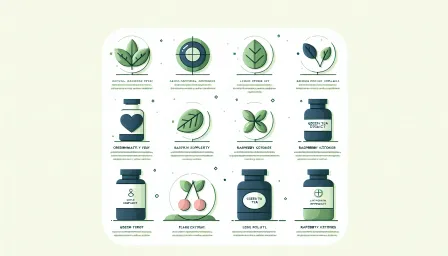How Much Water Should I Drink? A Comprehensive Guide

Discover how much water you should drink daily for optimal health and hydration. This comprehensive guide covers factors influencing water needs and practical tips.
Hydration is crucial to maintaining overall health, but figuring out exactly how much water you need to drink can be confusing. With an array of conflicting advice and varying recommendations, many people are left wondering, "How much water should I drink?" This guide will delve into the science of hydration, discuss key influencing factors, and provide practical guidance to help you stay properly hydrated.
The Importance of Hydration
Water is essential for life. It constitutes about 60% of the human body and plays a vital role in numerous physiological functions, including:
- Maintaining body temperature
- Lubricating joints
- Protecting sensitive tissues and organs
- Facilitating digestion and nutrient absorption
- Removing waste and toxins
General Recommendations
The commonly touted guideline is to drink eight 8-ounce glasses of water a day, also known as the "8x8 rule". While this may be a decent starting point, it's not backed by robust scientific evidence and may not be appropriate for everyone. So, how much water should you drink? Let's explore further.
Factors Affecting Water Needs
Individual water requirements can vary based on numerous factors. Below are some key elements that influence your daily water intake needs:
1. Body Weight and Composition
Larger individuals generally need more water due to a higher body weight and muscle mass. Muscle tissue holds more water than fat tissue, emphasizing the importance of hydration for physically active individuals.
2. Physical Activity
Exercise increases water loss through sweat. Athletes and physically active people may need significantly more water to compensate for this loss and maintain performance levels.
3. Climate and Environment
Your local climate affects hydration needs. Hot and humid conditions increase sweat production, leading to higher water requirements. Conversely, high altitudes can also drive water loss and dehydration.
4. Health Conditions
Certain health conditions, such as kidney disorders, diabetes, or gastrointestinal issues, may affect your body's need for water. It's essential to consult your healthcare provider for personalized advice if you have any medical conditions.
5. Diet
Foods and beverages contribute to your daily water intake. High-water-content foods like fruits and vegetables add to hydration, while caffeinated or alcohol-containing beverages may have a diuretic effect, increasing fluid loss.
Signs of Dehydration
It's important to recognize the signs of dehydration, which can include:
- Thirst
- Dry mouth and skin
- Fatigue
- Dark-colored urine
- Dizziness or lightheadedness
- Decreased urine output
Note that by the time you feel thirsty, you may already be mildly dehydrated. Regularly sipping water throughout the day is better than waiting for thirst to strike.
Optimal Hydration Tips
Maintaining optimal hydration doesn't have to be complicated. Here are some practical tips to help you meet your daily water needs:
1. Carry a Reusable Water Bottle
Having water readily available encourages regular drinking. Consider using a bottle with measured markers to track your intake.
2. Eat Hydrating Foods
Incorporate high-water-content foods into your diet, such as cucumbers, oranges, lettuce, and watermelon.
3. Set Reminders
Use smartphone apps or set hourly reminders to drink water, especially if you're prone to forgetting.
4. Listen to Your Body
Pay attention to your body's signals, such as thirst and energy levels, as cues to drink more water.
Conclusion
Determining the right amount of water for your needs doesn't have to be a challenge. While the traditional "8x8" rule is a decent benchmark, individual requirements can vary based on a range of factors, including body size, activity level, environment, and health conditions. By understanding these influences and paying attention to your body's signals, you can maintain optimal hydration and support your overall health. Remember to consult with healthcare professionals for personalized advice, particularly if you have specific medical conditions that may affect your water needs.



























